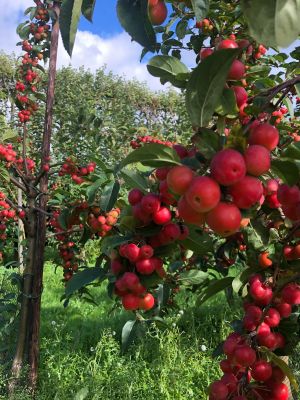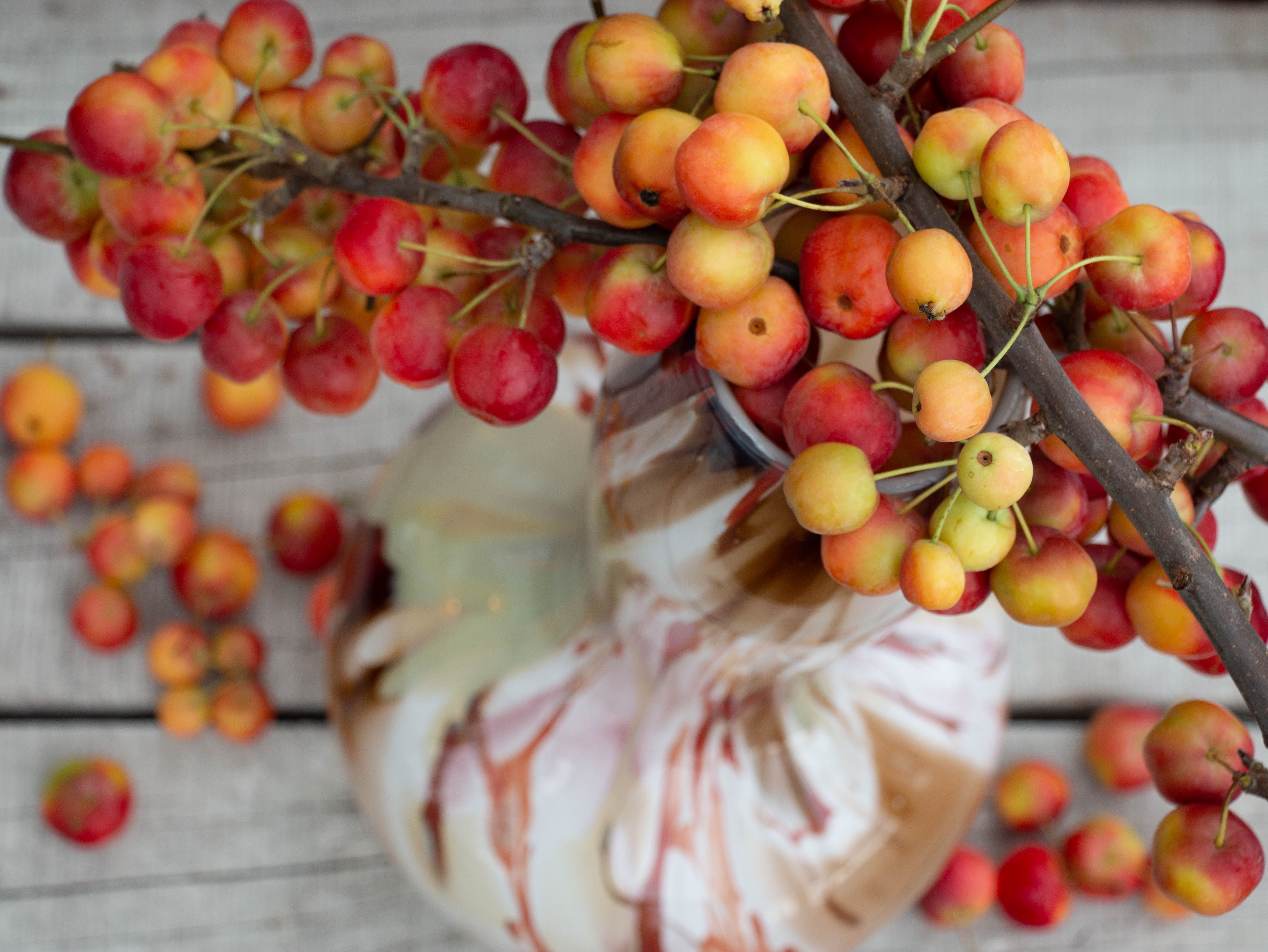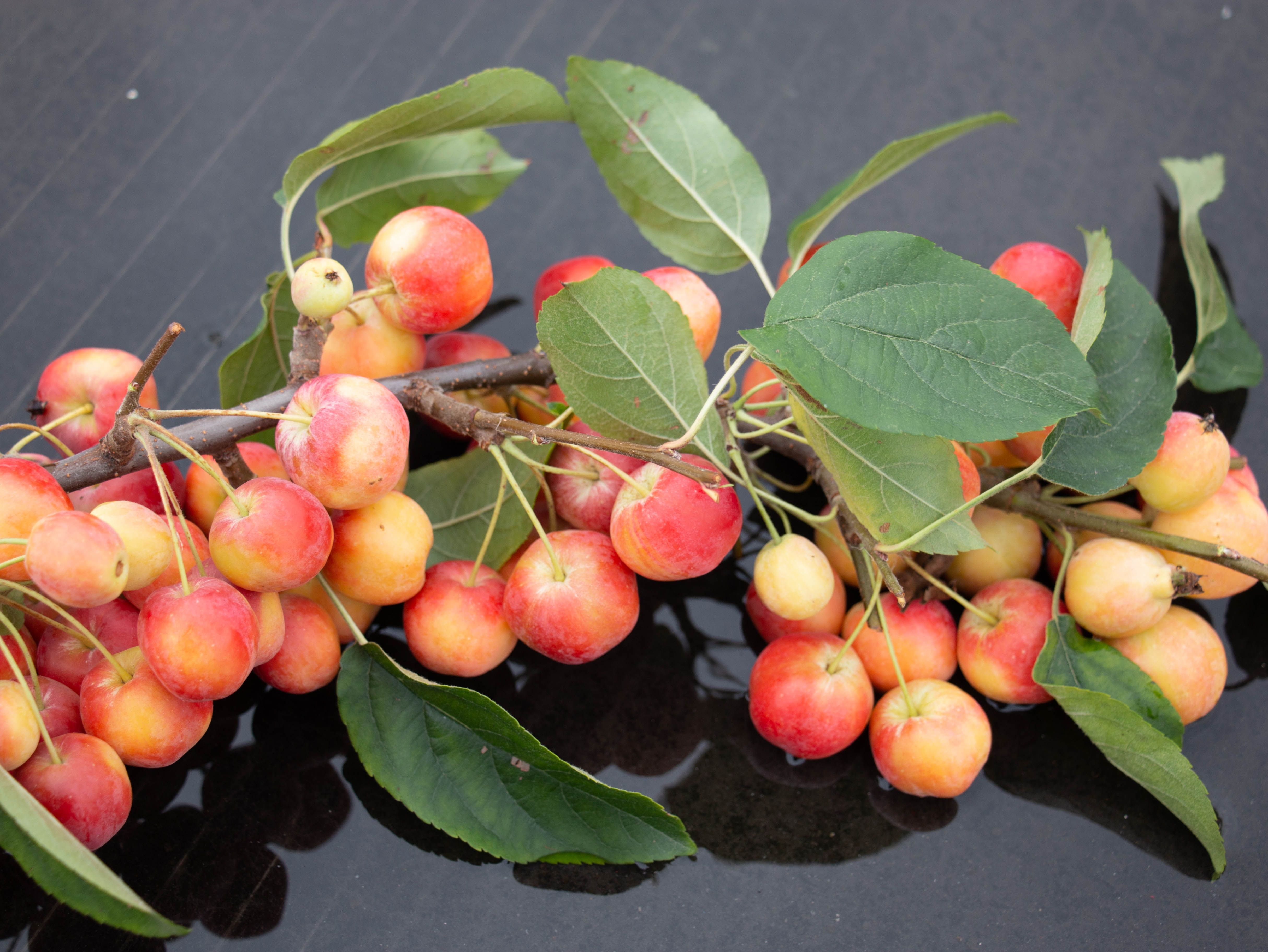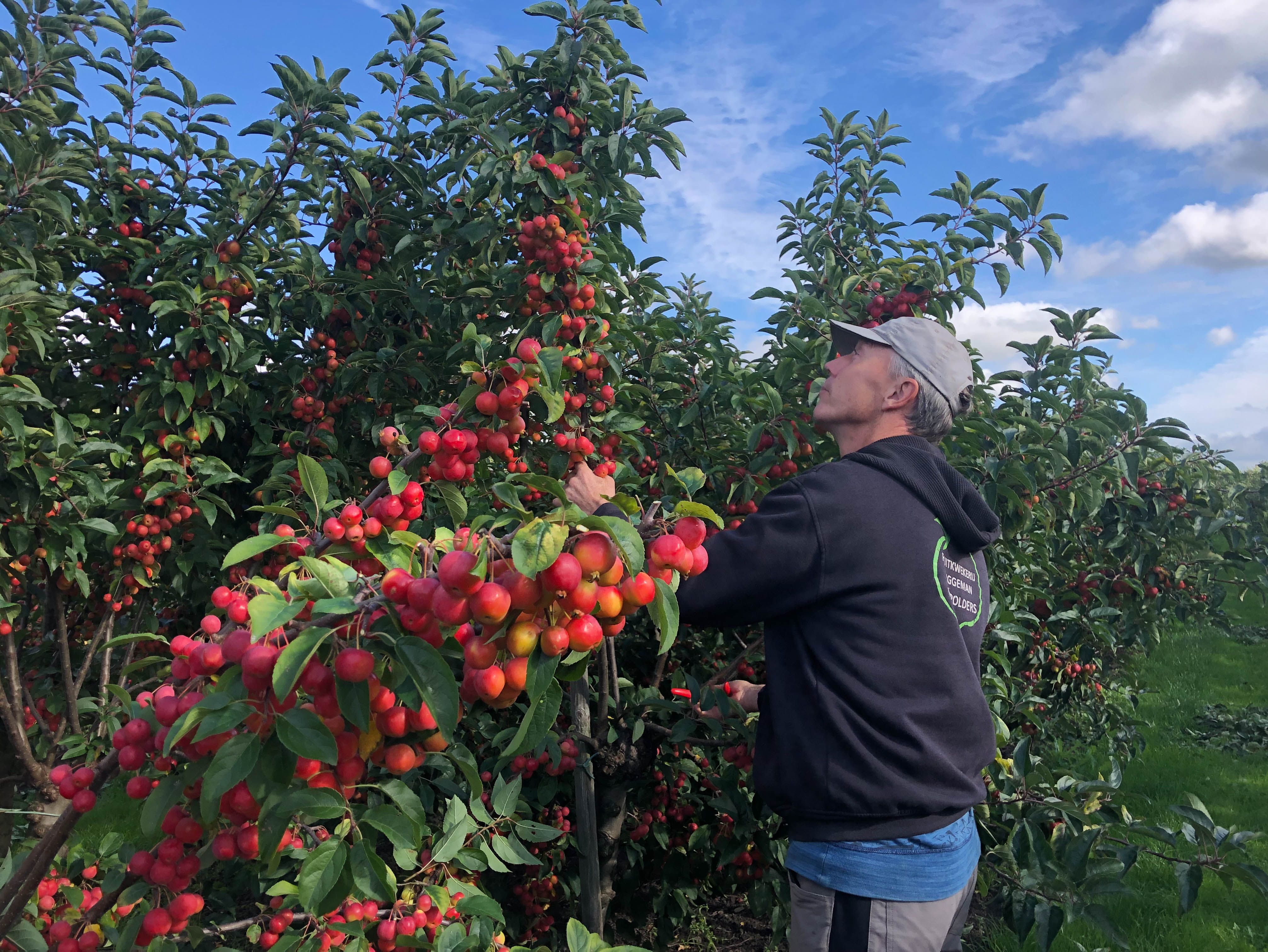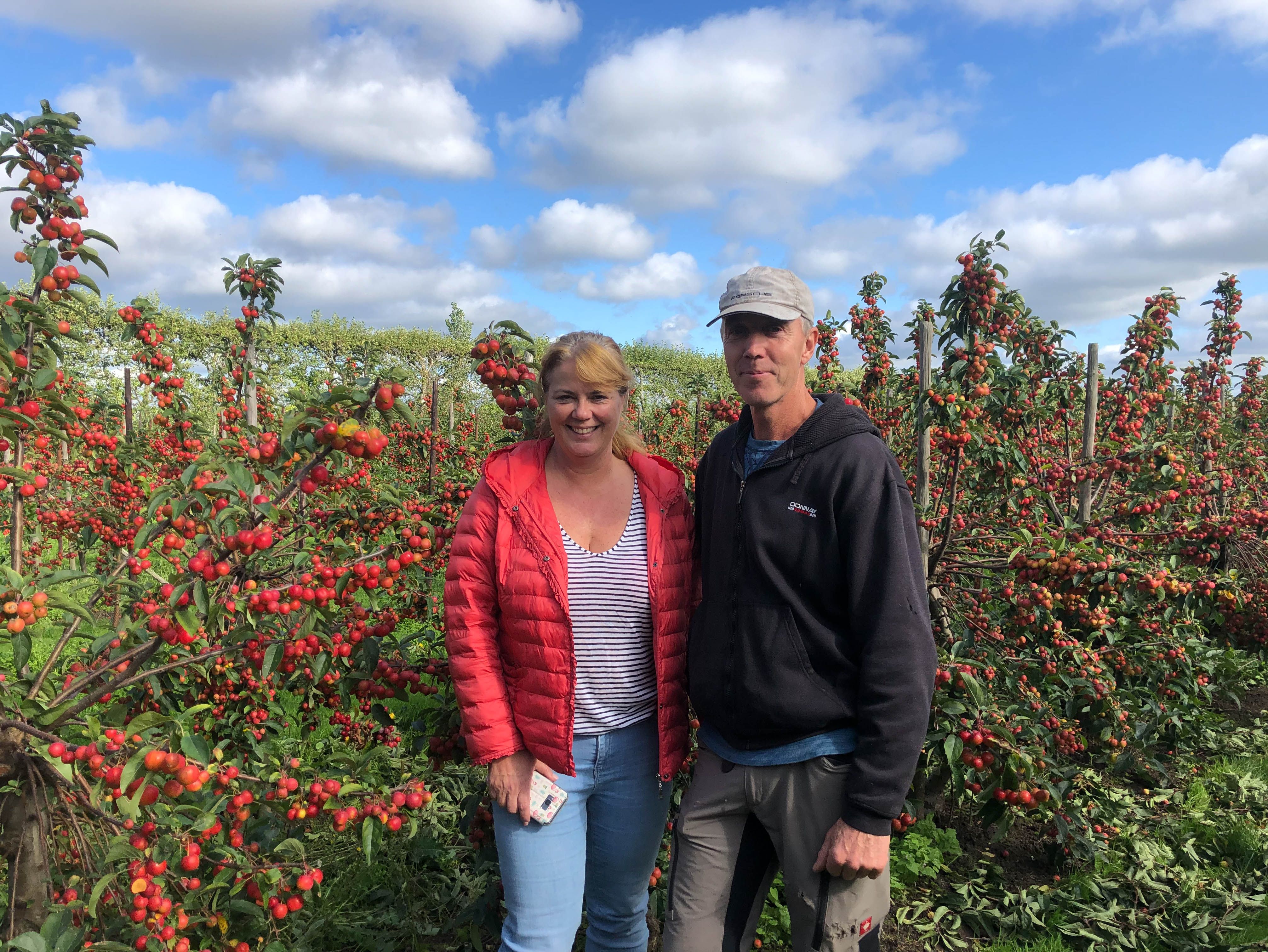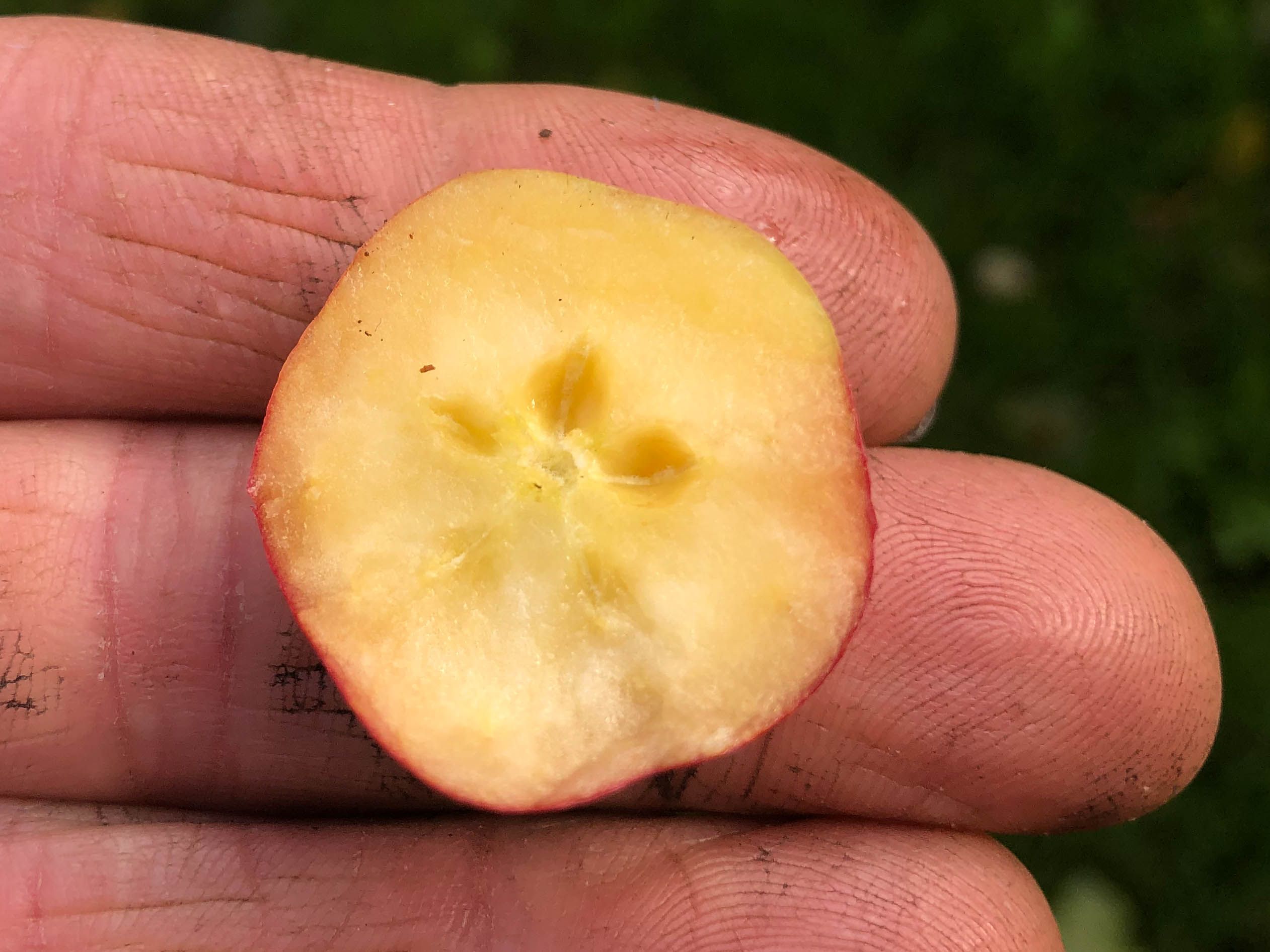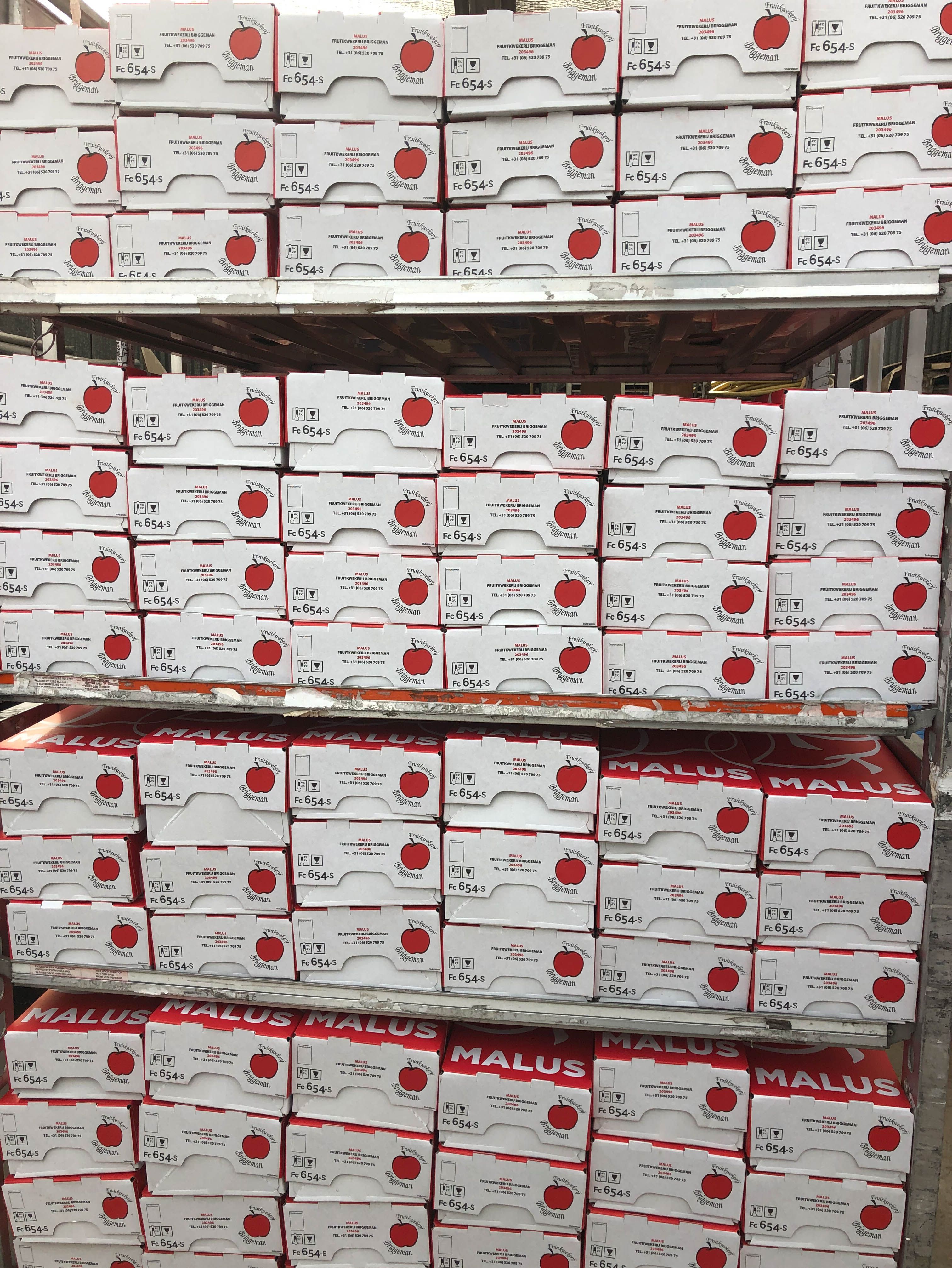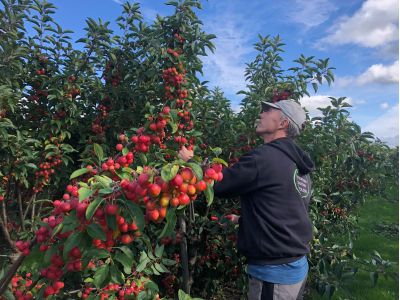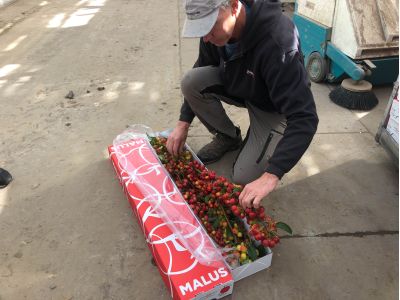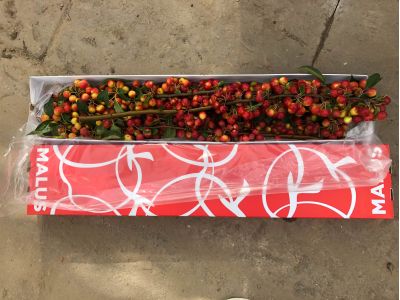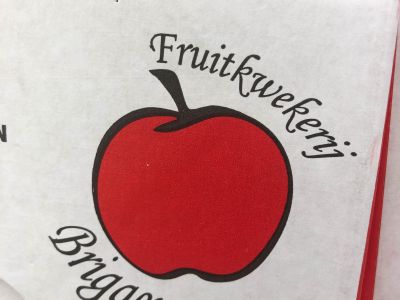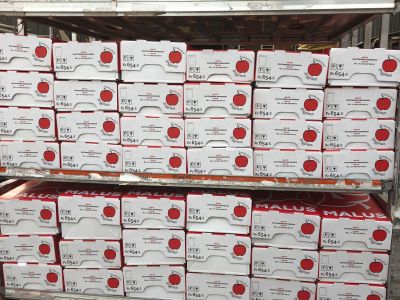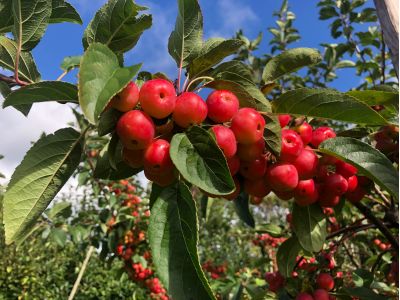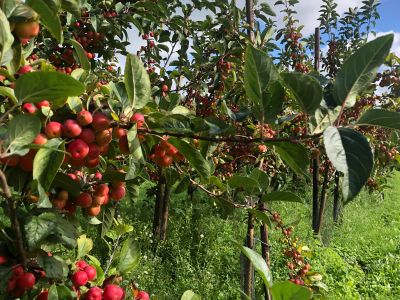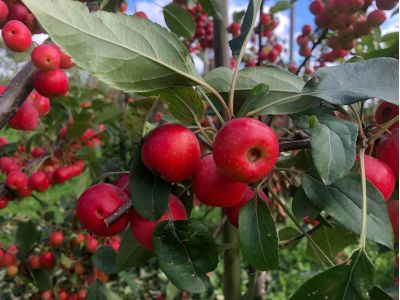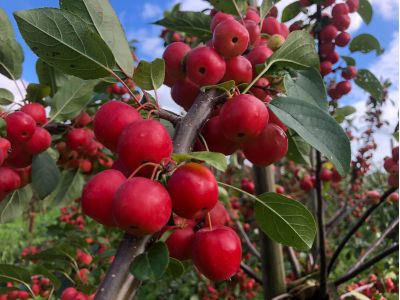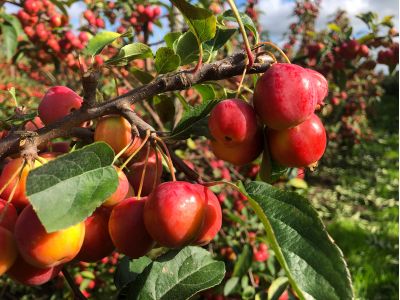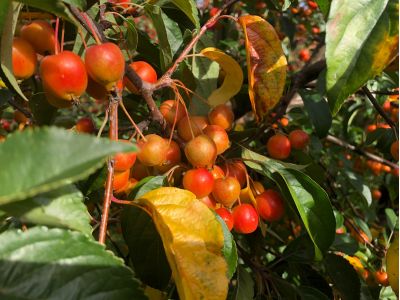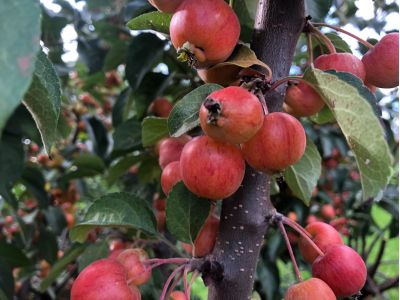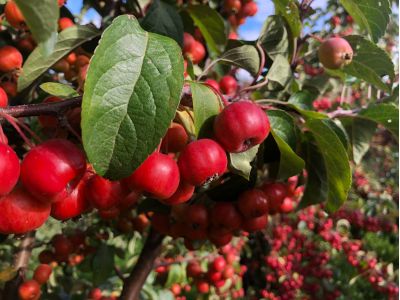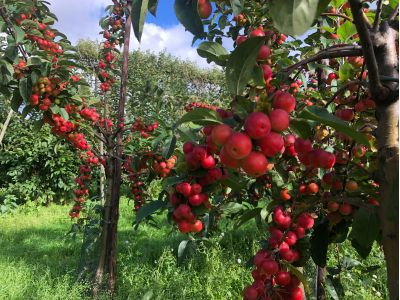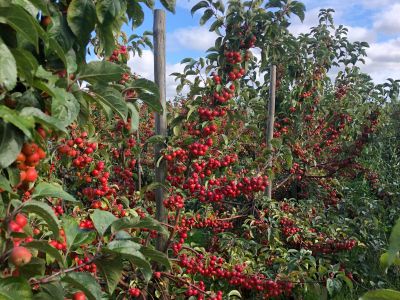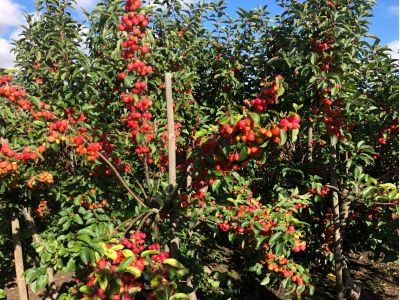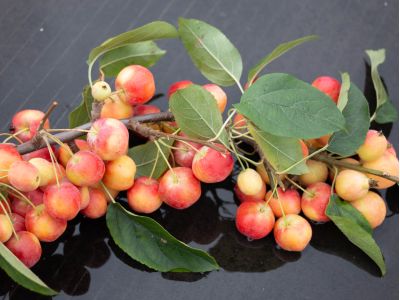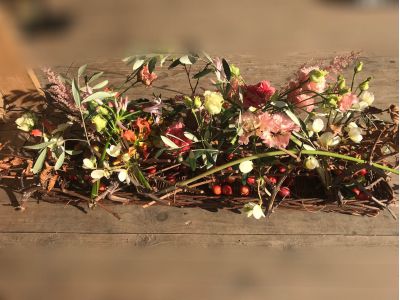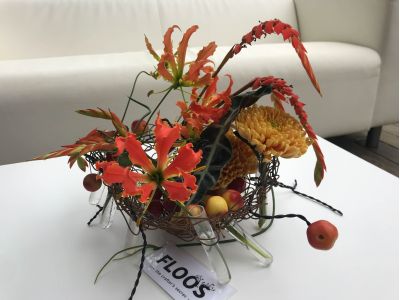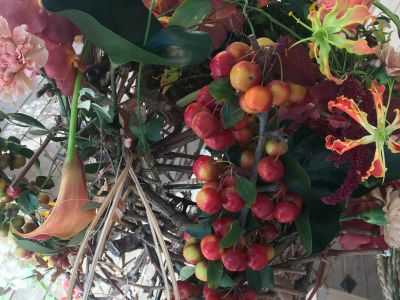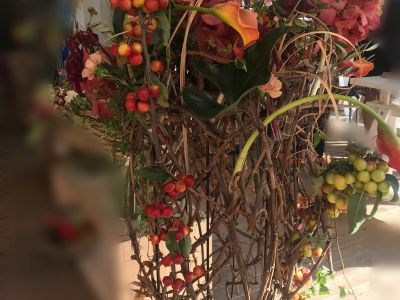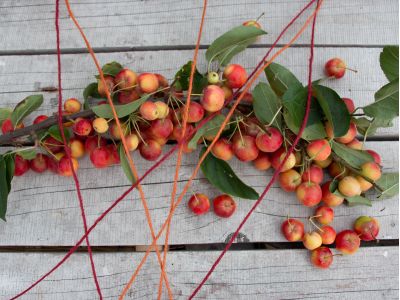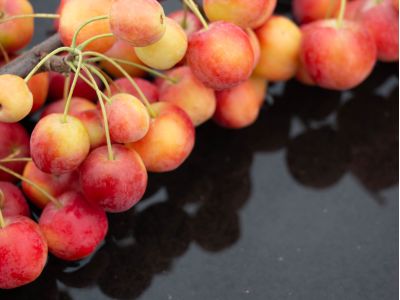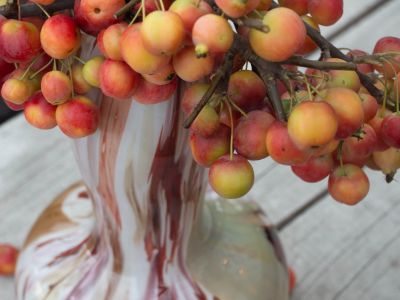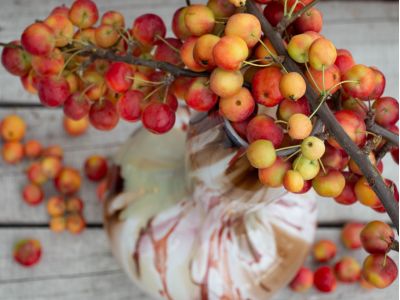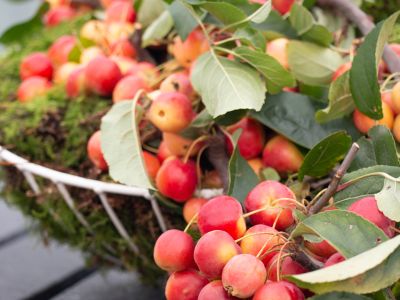Malus Red Sentinel
In the spotlights
Platforms, websites, Facebook and many other social media channels nowadays distribute a lot of information about growers and florists within the floriculture sector. We came across a message on Facebook from Johan and Karin Briggeman. In addition to different types of apple, they also grow ornamental apples with one important difference; they deliver Malus branches in boxes! And of course we wanted to know more about that.
Mixed business
Johan's parents used to have a mixed farm, just like many other gardeners. At that time it was small-scale and it consisted of some cattle and a piece of garden. This quickly expanded into a greenhouse horticulture company with various types of fruit and a farm shop.
Johan has taken over everything and he had big plans; everything had to be bigger, more and he wanted to focus on one type of apple. He soon reconsidered, learning along the way that specialization was difficult, because with one type of apple you also run much more risk. He literally and figuratively put an ax to it and he decided to split the piece of land into small pieces with different types of apples.
The mixed company from the past was back. If one variety is performing a bit less, another variety may work out better. The store also still exists. Potatoes, different types of fruit and vegetables are sold there every weekend to the local population.
The fruit and vegetable sector is a challenge nowadays. As a grower, you have to meet terribly high demands with your product to get a somewhat acceptable price. Requirements that are almost impossible for a grower. Johan and Karin have thought everything through and ten years ago made the choice to pick up a piece of floriculture in addition to fruit growing. The advantage of the ornamental apple is that it can go well with the normal apples. The control is the same, the harvest time is the same. And the biggest reward for Johan, the product was appreciated and even yielded a profit!
In the spotlights
One of their decorative apple varieties is the Malus 'Red Sentinel', this week in our spotlights. The Malus comes from the Rosaceae family and finds its origin in Asia.
Malus 'Red Sentinel' grows outdoors and is a true seasonal product related to autumn. It grows as nature wants. Characteristic of a Malus is that the branches are not all equally straight and the further in the season, the greater the chance of yellow leaves. The leaves of the trees turn yellow in the fall and so do the leaves of the Malus.
We were very impressed by these beautifully coloring trees. What a sight to see! The branches do need a large vase to stand in. The branches are really heavy due to the enormous amount of apples that grow on the branches. For a florist, these apple branches are the icing on the cake. They are beautiful, exclusive and they make it possible to create beautiful, large decorative pieces. This is a material that you as a florist can use to make a distinction. But also as a consumer it provides a beautiful eye catcher with a single branch.
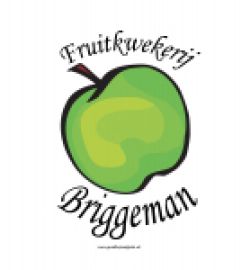
The Cultivation
Malus is a biennial crop. An apple grows on annual wood. When the tree has delivered beautiful branches full of ornamental apples one year, it is completely pruned. The first year after pruning the tree only produces leaves. The second year the tree comes back into bloom and the tree then gives new apples.
One of his men was busy working in the crop. All side branches were cut out between the decorative branches. The cut branches dry out. The energy goes to the good branches. This benefits the color of the apples. The leaf and fruit ratio must be good to get the best decorative value. This also depends on the weather. Cold nights are beneficial.
Cross-pollination
Malus needs a good cross-pollination to deliver good quality apples. This pollination is done by the bees.
With most ornamental plant products you get new varieties in the crop through cross-pollination. With the Malus, this is not immediately reflected in the type of apple. The type of tree is not different for different kinds of apple. The cross-pollination however is reflected in the seeds in the apple. If you would choose to plant them, you would get all kinds of other species in return.
Most apples have 4 compartments, Johan explained. This means that four seeds are formed in an apple. The core will then have four sides. If there has been a good cross-pollination, an apple can create 5 compartments. The more seeds, the larger and rounder the apple becomes. Some years the cross-pollination is not good enough. Johan then starts working with "gibraline" a hormone that ensures the apples’ growth. The apples however do not have any seeds and according to Johan, they are not as beautifully round as with a natural pollination.
Essential oils
Malus also has its natural enemies. Lice and scabies (fungus) can seriously damage the crop. Apple blossom beetles and pear bud beetles are also bugs that Johan would rather not have in his crop. They lay eggs in the fruit bud, preventing it from creating fruit.
Johan works a lot with essential oils. This is a mix made in a lab. The mint section repels insects, another part ensures leaf stability. The sticky bit of oil ensures that the hatched larvae and small flies get stuck.
By using these oils he keeps the pests manageable and the useful insects stay alive.
Boxes
No more heavy lifting. No splashing water on your clothes during transport. No more loose apples that end up everywhere. But much more volume on a cart, longer vase life (a few weeks in the box) and much easier to transport. Johan is very enthusiastic about his new method of delivery.
Last year they conducted a test with the packaging of Malus in Amaryllis boxes. This worked very well. The only change he made is that he wanted the same printing on both sides of the box, so he didn't have to pay attention to how the box was placed on the cart. Left or right, a nice sleek cart for the auction and ideal for export!
Johan would like to take the next step in the Malus culture. To create a product that the trade can no longer ignore from the autumn range. The product from which everyone buys a number of boxes every day as a standard. This is the challenge for Johan at the moment. He also wants to achieve this through his different way of supplying. By packing it in boxes, the branches stay tidy, you can transport it more easily and it is less heavy to lift. Malus should become the standard in a florist's assortment.
FloraPodium, 10 October 2019






